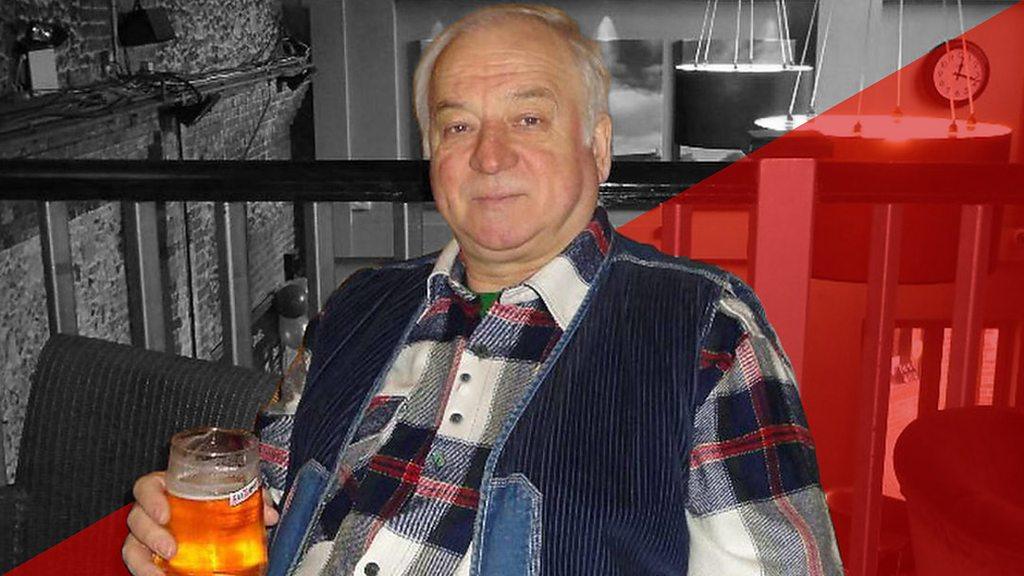Skripal case: Mystery of third man in Salisbury poisoning
- Published
Russian spy poisoning: Why was Sergei Skripal attacked?
Was a third man involved in the Salisbury poisoning?
Reports have suggested that a man using the name Sergey Fedotov could have been in the country and linked to the poisoning of Sergei and Yulia Skripal last March, in addition to two suspects already named.
British Police say they are still investigating whether further suspects were involved.
Fedotov's name first surfaced last October in reports from the Russian news outlet Fontanka.
The investigative site Bellingcat now say they believe his was a false identity, external created around 2010 with no previous history - a similar profile to the other two suspects named by police.
Bellingcat claims that "Fedotov" travelled widely in Europe, Asia and the Middle East. In one case he visited Bulgaria in April 2015 at the time that a Bulgarian businessman involved in the defence industry fell ill with the symptoms of poisoning.
The businessman eventually recovered. It is not clear what made him ill.
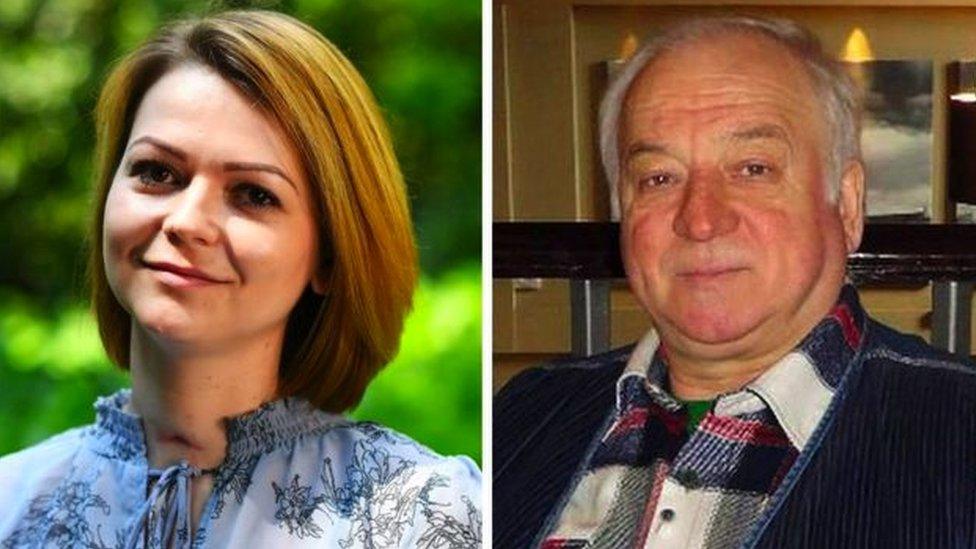
Sergei Skripal, 67, and his daughter Yulia survived the attack in Salisbury
In that case, "Fedotov" is alleged to have not shown up for a return flight from Bulgaria he had booked but instead went to Istanbul and bought a last minute ticket to Moscow.
Similar behaviour has been reported as occurring after the Salisbury poisoning with him arriving just before the poisoning but failing to take a flight he had booked on leaving just after. Contrary to some reports, he is not thought to have stayed in the UK but instead taken a different route out of the country.
This may have been part of his "tradecraft" - if he had been worried that the authorities could be on his trail, he might hope they would stake out the flight he had booked on while he took a different one.
The details of his identity and travel have not been independently verified and there may well be layers of confusion surrounding the story.
In September, the Metropolitan Police released images and details of two men who used the names Alexander Petrov and Ruslan Boshirov and who were accused of smearing nerve agent on the front door handle of Sergei Skripal's house. The UK government said they were members of the GRU - Russian military intelligence.
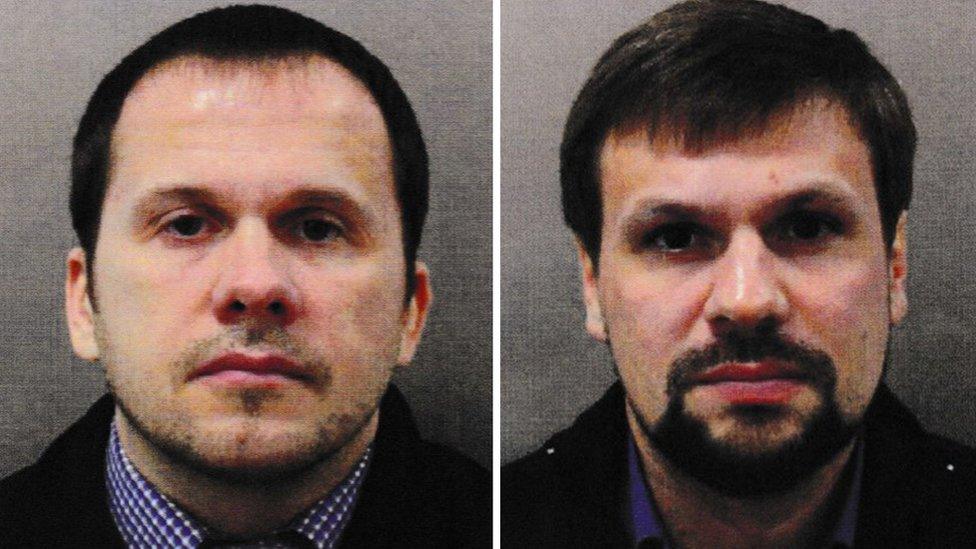
Alexander Mishkin and Anatoliy Chepiga are thought to have carried out the Salisbury attack
The pair appeared on Russian TV in September saying they were innocent tourists who had merely come to England to visit Salisbury and see its famous 123 metre spire.
They were later identified by Bellingcat as Colonel Anatoliy Chepiga and Dr Alexander Mishkin, two members of the GRU. Those names have since been confirmed by British officials.
The CCTV images released by police last September showed only the two previously named men and so any further individuals may not have necessarily accompanied the others to Salisbury but could have remained in London.
In the case of Petrov and Boshirov, the British authorities knew the names for some time before making them public in the hope that the pair might not realise they were under suspicion and so travel abroad to a place where they could be arrested and extradited. Only when that proved not to be the case were the names released.
It may well be the case that the authorities have been trying the same thing with a third man - hoping a lack of publicity may leave him vulnerable. Those hopes are likely to be dashed after this latest wave of publicity.
After their TV interview, Petrov and Boshirov (or Chepiga and Mishkin) have both disappeared and have not been seen in public or made any further statements.
The two men suspected of poisoning Sergei Skripal and his daughter Yulia in Salisbury are seen walking to the victims' home
Kremlin spokesman Dmitry Peskov cast doubt on the latest reports.
"We only have one question, how could the use of some supposedly military grade substance in Europe in 2015 remain unnoticed?" he told the BBC.
"We don't know what the report's authors based their work on - how competent they are - who they are - and whether this is true at all."
The Russian Embassy in the UK also dismissed the reports. "We are dealing with another story planted by the British security services. They are attempting to keep alive the story of the poisoning of Sergei and Yulia Skripal using carefully managed leaks citing 'informed sources'," the embassy's spokesperson was quoted as saying.
British Police have made clear though that they remain open to the idea that others were involved beyond the two men they have already named.
"The investigation team continues to pursue a number of lines of enquiry, including identifying any other suspects who may have been involved in carrying out or planning the attack. We are not prepared to discuss further details of what remains an ongoing investigation," the Metropolitan Police said in response to the latest reports.
- Published27 September 2018
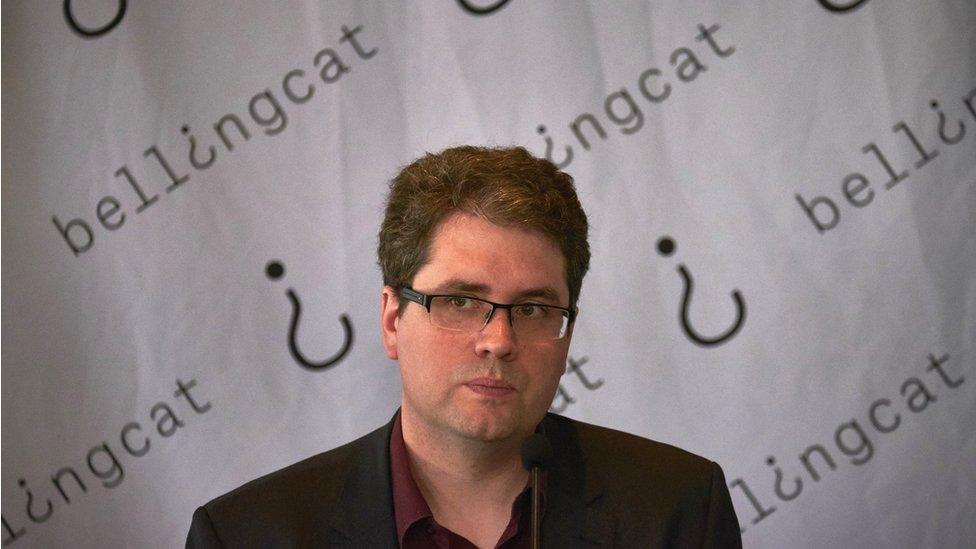
- Published27 September 2018
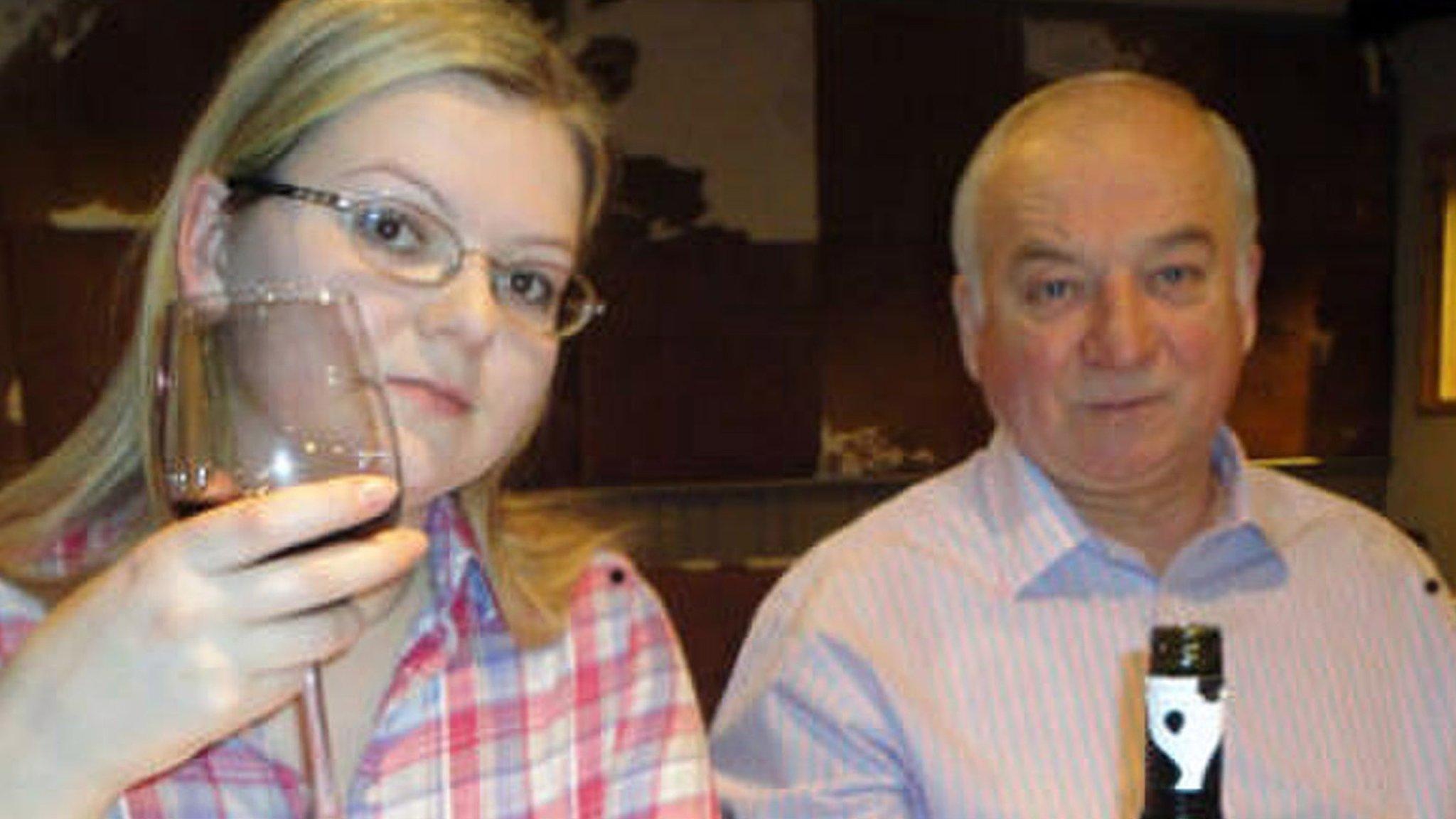
- Published22 November 2018
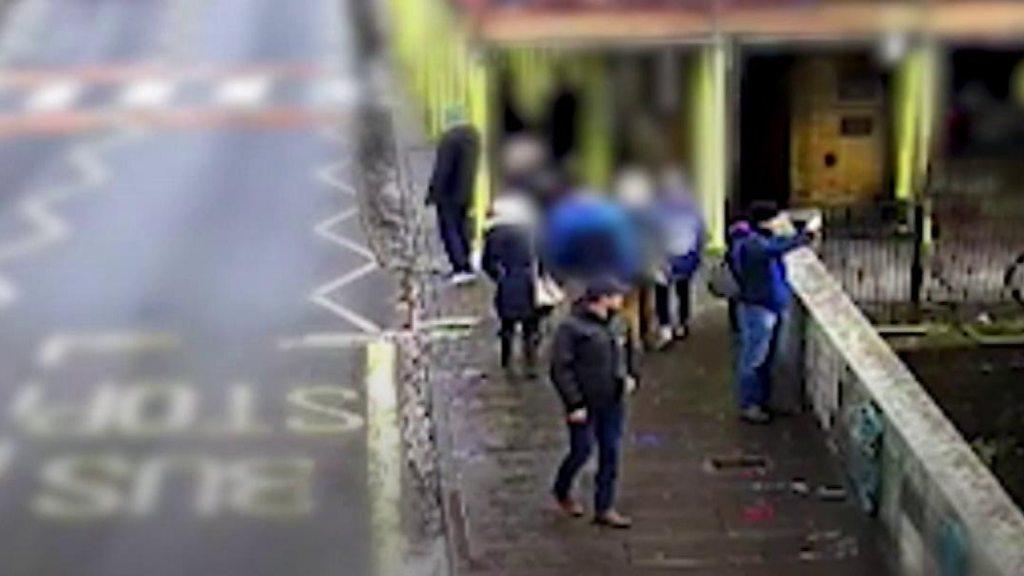
- Published25 October 2018
